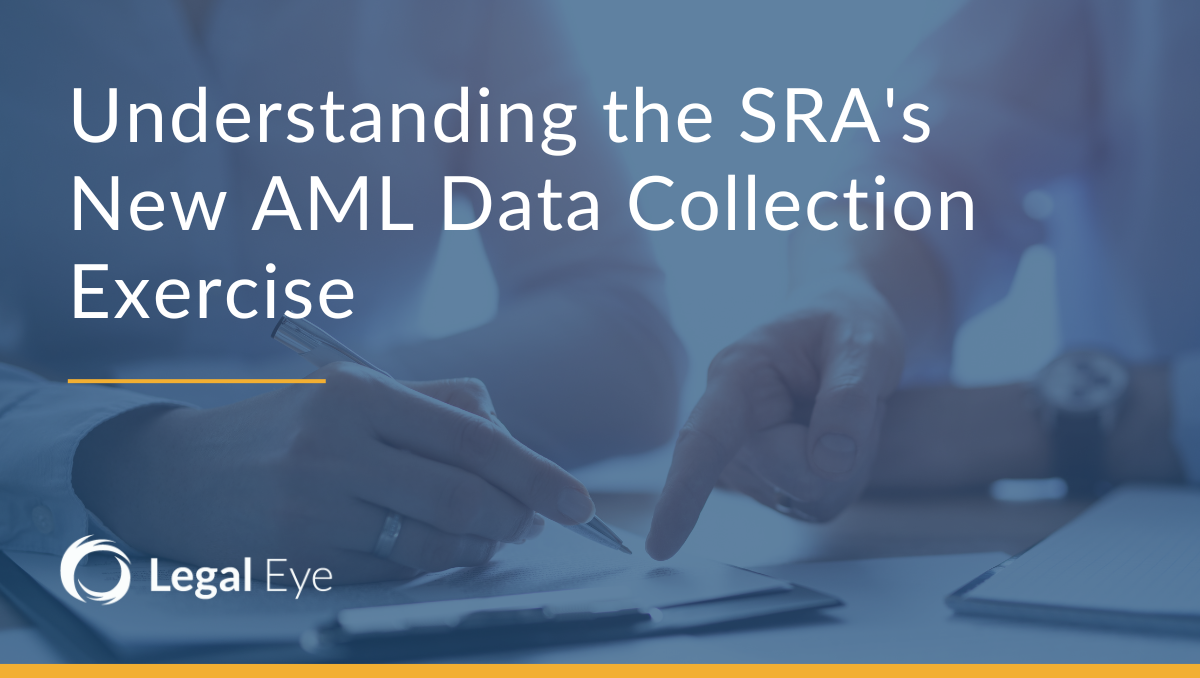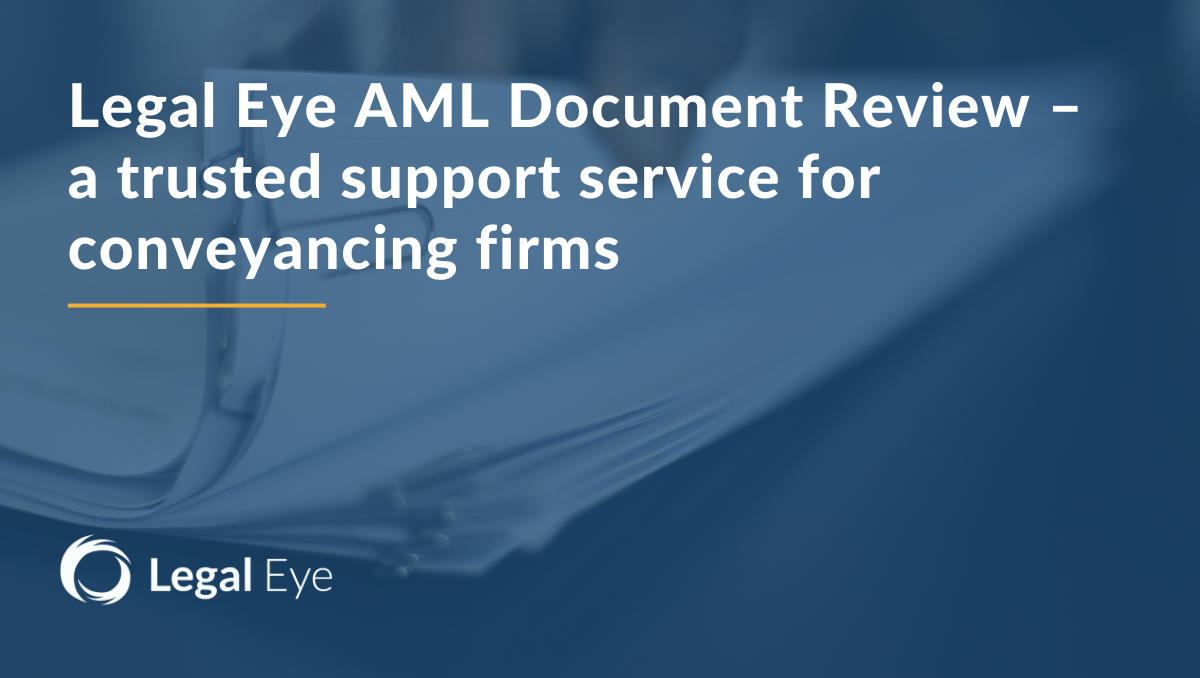The Conveyancing Association (CA), the leading representative body for the conveyancing industry, has today (16th…
Law firms – particularly those involved in high-risk transactions or managing clients in high-risk industries – must ensure their anti-money laundering (AML) processes and practices align with current and evolving regulatory expectations.
In 2024, the Solicitors Regulation Authority (SRA) launched a comprehensive data collection exercise focusing on AML within the legal sector. The SRA’s latest effort—which closed for submissions on 23 September—used a survey to gather information from law firms about their AML practices and policies.
The questionnaire assessed compliance with the Money Laundering, Terrorist Financing and Transfer of Funds (Information on the Payer) Regulations 2017 (MLRs 2017). These regulations mandate firms to take proactive steps to prevent financial crime.
The SRA plans to use the data gathered from participating law firms to:
- Improve its understanding of AML risks
- Ensure law firms are managing these risks effectively.
Ultimately, the data collected will be used to better safeguard the legal profession from financial crime.
Details of the questionnaire
Three critical components of the AML questionnaire included:
- The AML work undertaken by law firms
The questionnaire set out the legal work that falls within the scope of the MLRs 2017. This includes:
- The buying and selling of real property or business entities
- The managing of client money, securities or other assets
- The opening or management of bank, savings or securities accounts (other than a client account as specified in the Accounts Rules)
- The organisation of contributions necessary for the creation, operation or management of companies
- Providing material aid, or assistance or advice, in connection with the tax affairs of other persons, whether provided directly or through a third party, when providing such services.
To help the SRA assess the legal sector’s overall exposure to money laundering and ensure firms are adhering to their regulatory obligations, firms were required to disclose:
- The types of legal work they engage in that may pose an AML risk
- The processes they have in place to mitigate these risks (eg client due diligence and enhanced due diligence)
- The volume and frequency of such work, particularly in sectors known for higher money laundering risks.
- Sanctions Regime involvement
Law firms must ensure they do not directly or indirectly facilitate transactions involving individuals or entities subject to international sanctions. This is particularly important in light of current geopolitical tensions.
The UK Sanctions Regime is critical when it comes to preventing financial crime. Highlighting the SRA’s commitment to ensuring law firms remain vigilant in their compliance with the regime, the regulator asked firms to disclose:
- Any dealings with sanctioned individuals, entities, or countries
- The measures taken to ensure compliance with the UK Sanctions Regime (e.g. client screening and verification procedures)
- The frequency and nature of any breaches or near breaches of the sanctions rules.
- Suspicious Activity Reports (SARs)
SARs play a critical tool in the fight against financial crime, and law firms must report any suspicious activity to the National Crime Agency (NCA). Helping the SRA to evaluate how effectively law firms are contributing to the detection of money laundering and other financial crimes, the questionnaire asked for details on:
- The number of SARs firms have submitted within a specific timeframe
- The nature of the suspicions that led to these reports
- The internal procedures for identifying and escalating suspicious activities within the firm.
The broader impact of the SRA’s AML data collection initiative
The SRA’s AML data collection initiative could significantly affect the regulatory landscape for legal professionals. By gathering detailed information on firms’ AML practices, the regulator is likely to identify areas where compliance is lacking, potentially leading to increased scrutiny and more stringent regulations.
Additionally, this exercise may signal a shift toward a more rigorous approach to AML compliance. Firms that fail to meet regulatory standards could soon face more stringent fines, disciplinary action, or increased monitoring.
Compliance requirements and next steps
When addressing AML compliance, firms must take several steps to ensure their internal processes align with regulatory expectations. This includes:
Reviewing internal procedures
Firms should conduct an internal audit of their AML procedures to ensure they meet the requirements of the MLRs 2017. This includes reviewing client due diligence processes, transaction monitoring systems, and record-keeping practices.
Ensuring AML training is up to date
AML training is essential for all staff members, particularly those in client-facing roles. Regularly training all employees on AML requirements and emerging threats is crucial for maintaining compliance.
Strengthening reporting mechanisms
Firms must ensure robust processes for identifying and reporting suspicious activity. This includes having a clear escalation process for potential SARs and ensuring that reporting obligations are met promptly and accurately.
Reviewing client base and transactions
High-risk clients and transactions should be closely monitored and firms should conduct enhanced due diligence where necessary. This includes regularly reviewing existing clients for any changes in risk status.
Conclusion
The SRA’s latest AML initiative is more than just a data collection exercise; it represents a significant step towards safeguarding the legal profession from financial crime. The outcome of this survey will be closely monitored across the sector, as it has the potential to shape future regulatory measures and reinforce the profession’s role in combating money laundering and terrorist financing.
For law firms, this is an opportunity to review and enhance their internal AML processes, ensuring they are well-equipped to detect and prevent financial crime. By doing so, firms can mitigate the risk of costly fines and safeguard their reputation from potential damage.
At Legal Eye, we provide sound advice and practical solutions to help our law firm clients meet their AML obligations. Call us today on 020 3051 2049 to find out how we can help.




